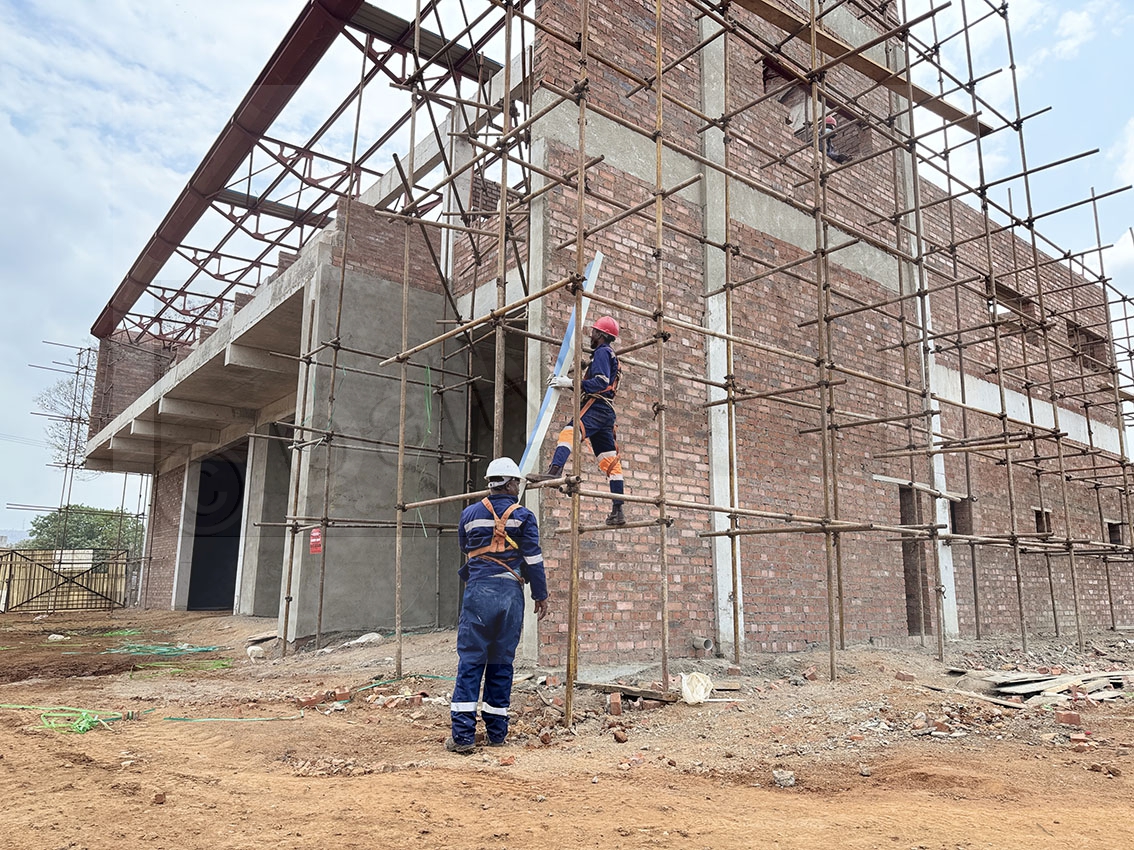De Beers on path for Sustainable Goals
28 May 2023
Global diamond mining giant, De Beers says it remains on the path to deliver on the 2030 Sustainable Goals.
In a media statement released last week, De Beers says the goals set in 2020 are its blueprint for creating a positive and sustainable impact in its host countries and throughout the diamond value chain.
“They span four pillars: Leading Ethical Practices, Partnering for Thriving Communities, Protecting the Natural World, and Accelerating Equal Opportunity,” reads the press release.
The company notes that it saw advances across all four Building Forever pillars and all 12 goals, which include reductions in water use and energy intensity, innovations in diamond tracing technology, increased representation of women in senior leadership and progress toward its climate commitments.
It notes that a milestone has been set in reducing emissions by 42 per cent by 2030.
“De Beers has a simple belief that informs everything we do, the diamonds we discover belong to the communities and countries in which they are found.
We are inspired by the beauty and rarity of natural diamonds and the natural world, and we know how precious diamonds are – not only for the people who wear them, but for all those they touch along the way, says De Beers Group CEO, Mr Al Cook in a press release.
In the 2022 sustainability report released last week, De Beers notes that it remains committed to advancing industry standards, enhancing the transparency of diamond provenance and improving the livelihoods of artisanal miners.
Recently De Beers launched the Tracr blockchain platform at scale, enabling diamond origin to be immutably recorded from source to store. More than half of De Beers’ global rough diamond production by value is now being registered on Tracr.
The diamond leading company, in which Botswana has 15 per cent share, states that it follows best practices for biodiversity and water management, air quality, greenhouse gas emissions, waste and mine closure as well as rehabilitation.
It has thus achieved a 14 per cent reduction in freshwater withdrawals and a four per cent reduction in energy intensity compared to 2021.
In partnership with Anglo American and EDF Renewables, De Beers commenced development of over 70 MW of renewable energy projects in southern Africa. De Beers also manages a 500 000-acre network of conservation sites across Southern Africa, protecting more than 50 mammal species.
It has also continued Okavango Eternal, a partnership with National Geographic to protect the critically important headwards of the Okavango Delta.
Progress included installing innovative water monitoring technology, deepening research and understanding, and engaging with communities on soil-friendly farming methods.
In addition to environment conservation, De Beers is focused on working with a range of stakeholders to help build a sustainable future and contribute to a better quality of life in its host communities with particular emphasis on health and wellbeing, education and skills development, economic diversification, and livelihood support.
It has been two decades since the introduction of HIV programme where employees and their family members living with HIV and AIDS are provided with free and confidential treatment.
An estimated 650 lives have been saved during this time and there have been no cases of mother-to-child transmission among De Beers employees or their partners for 14 consecutive years.
In collaboration with Right to Care, the mining company has rolled out a community-oriented primary care partnership to strengthen medical clinics in Southern Africa.
De Beers has also supported 420 students in securing 12-month internships in different sectors through a partnership with International Youth Foundation.
A total of 18 southern Africa-based companies completed the Stanford Seed Transformation entrepreneurship programme that De Beers supports in partnership with Stanford University.
In total, over 3 340 jobs were supported by De Beers through various socio-economic development projects and initiatives and 71 per cent of its goods and services were procured from local suppliers.
The company, which operates mines in South Africa, Canada, Botswana and Namibia, says it is focusing on accelerating economic inclusion with a particular focus on addressing the historical under-representation of women in its talent pipeline and encouraging fresh and diverse talent into the diamond jewellery sector.
The company notes that 33 per cent of senior positions are held by women, compared to 31 per cent in 2021.
It has also extended, for another three years, the partnership with WomEng to help women and girls pursue careers in engineering and technology.
Since 2018, De Beers has provided 89 scholarships to women studying STEM at universities in Canada, has reached more than 3 700 school students in Southern Africa through STEM workshops, and has supported more than 2 400 women entrepreneurs to grow their businesses. ENDS
Source : BOPA
Author : Tebagano Ntshole
Location : Molepolole
Event : Media statement
Date : 28 May 2023





